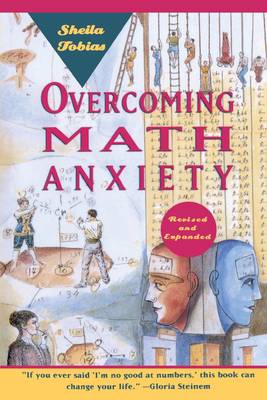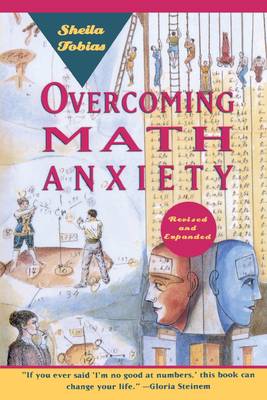
- Afhalen na 1 uur in een winkel met voorraad
- Gratis thuislevering in België vanaf € 30
- Ruim aanbod met 7 miljoen producten
- Afhalen na 1 uur in een winkel met voorraad
- Gratis thuislevering in België vanaf € 30
- Ruim aanbod met 7 miljoen producten
Zoeken
Omschrijving
The new edition retains the author's pungent analysis of what makes math hard for otherwise successful people and how women, more than men, become victims of a gendered view of math. It has been substantially updated to incorporate new research on what we know and don't know about sex differences in brain organization and function, and it has been enlarged to include problems, puzzles, and strategies tried out in hundreds of math anxiety workshops Tobias and her colleagues have sponsored.
What remains unchanged is the author's politics. She sees math anxiety as a political issue. So long as people themselves to be disabled in mathematics and do not rise up and confront the social and pedagogical origins of their disabilities, they will be denied math mental health. Tobias defines this as the willingness to learn the math you need when you need it. In an ever more technical society, having that willingness can make the difference between high and low self-esteem, failure and success.
What remains unchanged is the author's politics. She sees math anxiety as a political issue. So long as people themselves to be disabled in mathematics and do not rise up and confront the social and pedagogical origins of their disabilities, they will be denied math mental health. Tobias defines this as the willingness to learn the math you need when you need it. In an ever more technical society, having that willingness can make the difference between high and low self-esteem, failure and success.
Specificaties
Betrokkenen
- Auteur(s):
- Uitgeverij:
Inhoud
- Aantal bladzijden:
- 262
- Taal:
- Engels
Eigenschappen
- Productcode (EAN):
- 9780393313079
- Verschijningsdatum:
- 1/08/1995
- Uitvoering:
- Paperback
- Formaat:
- Trade paperback (VS)
- Afmetingen:
- 141 mm x 211 mm
- Gewicht:
- 240 g

Alleen bij Standaard Boekhandel
+ 68 punten op je klantenkaart van Standaard Boekhandel
Beoordelingen
We publiceren alleen reviews die voldoen aan de voorwaarden voor reviews. Bekijk onze voorwaarden voor reviews.







